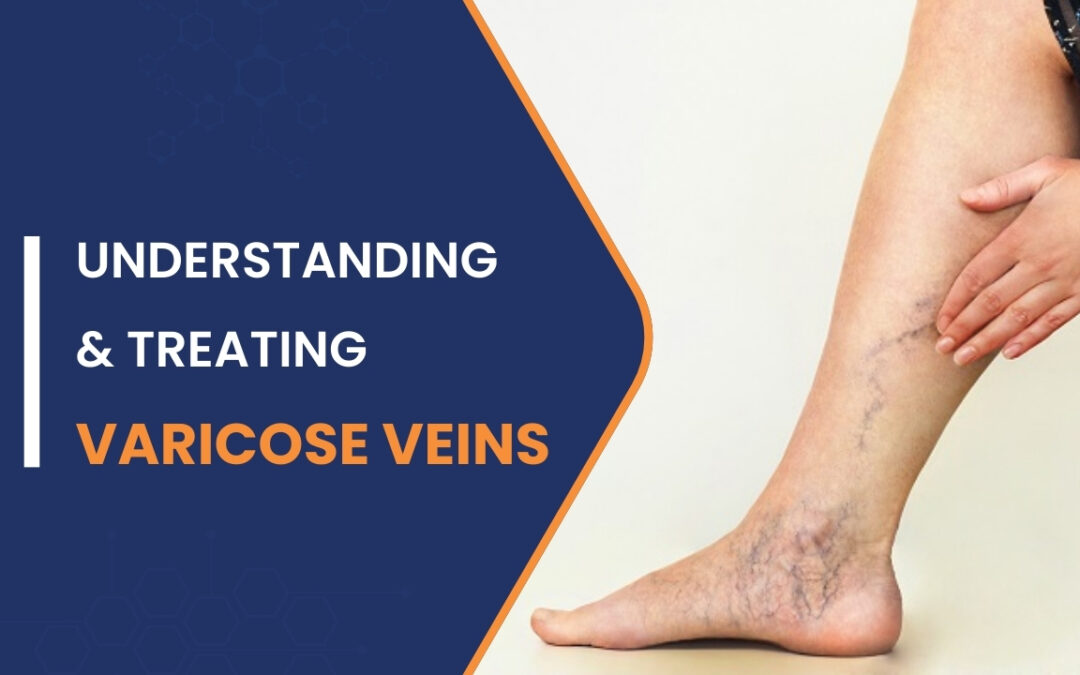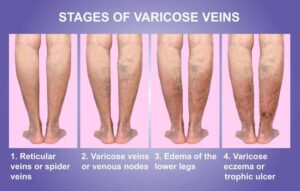Introduction to Varicose Veins Self Care:
Varicose veins are a common vascular condition characterized by enlarged, twisted veins, often occurring in the legs. While medical treatments are available, incorporating self-care measures into daily routines can significantly alleviate symptoms and improve overall vascular health. Understanding the basics of Varicose Veins Self-Care is essential for individuals seeking to manage their condition effectively. In this comprehensive guide, we’ll explore various self-care measures that can help individuals with varicose veins lead more comfortable and active lives. From regular exercise to proper leg elevation techniques and dietary considerations, implementing these strategies can promote better blood circulation, reduce discomfort, and prevent complications associated with varicose veins. Whether you’re looking to complement medical treatments or take proactive steps to maintain vascular health, this guide will provide valuable insights into effective varicose veins self-care practices..
Preventive Benefits of Early Varicose Veins Self Care:
- Halting Progression: Early intervention with self-care measures can help halt the progression of varicose veins. By addressing risk factors such as prolonged sitting or standing, obesity, and lack of exercise, individuals can prevent further damage to the veins and minimize the development of additional varicosities.
- Managing Symptoms: Self-care techniques such as leg elevation, regular exercise, and wearing compression stockings can effectively manage symptoms associated with varicose veins, such as pain, swelling, and discomfort. By addressing these symptoms early on, individuals can maintain a higher quality of life and avoid the need for more invasive treatments in the future.
- Preventing Complications: Varicose veins left untreated can lead to complications such as skin changes, ulcers, and blood clots. By implementing self-care measures early, individuals can reduce the risk of these complications occurring. Proper leg elevation, weight management, and skin care can all contribute to preventing more serious issues from developing.
- Improving Vascular Health: Self-care practices aimed at improving overall vascular health can have long-term benefits in preventing varicose veins from worsening. By adopting a healthy lifestyle that includes regular exercise, a balanced diet, and adequate hydration, individuals can support optimal blood circulation and reduce the risk of venous insufficiency.
Varicose Veins Self Care Measures:
Regular Exercise for Varicose Veins Self Care:
Engage in activities like walking, swimming, cycling, or yoga to promote blood circulation throughout the body, including the legs. Regular exercise helps strengthen the muscles surrounding the veins and encourages blood flow back to the heart, reducing the risk of varicose veins worsening.
Healthy Diet for Varicose Veins Self Care:
Maintain a balanced diet rich in fiber, antioxidants, and essential nutrients to support overall vascular health. Include plenty of fruits, vegetables, whole grains, and lean proteins in your diet to promote healthy blood circulation and reduce inflammation, which can exacerbate varicose veins symptoms.
Compression Stockings for Varicose Veins Self Care:
Wear compression stockings as part of your varicose veins self-care routine to provide gentle pressure to the legs, aiding in blood circulation and reducing discomfort. These specially designed stockings help prevent blood from pooling in the veins and alleviate symptoms such as swelling and achiness.
Skin Care for Varicose Veins Self Care:
Keep the skin on your legs moisturized to prevent dryness and itching, which can aggravate varicose veins. Avoid harsh soaps and hot water, as these can further irritate the skin. If itching occurs, resist the urge to scratch, as this can lead to breaks in the skin and increase the risk of infection.
Weight Management for Varicose Veins Self Care:
Maintain a healthy weight through a combination of regular exercise and a balanced diet to reduce pressure on the veins and lower the risk of varicose veins developing or worsening.
Daily Habits for Varicose Veins Self Care:
- Take Regular Breaks: Whether you have a desk job or spend long hours on your feet, taking regular breaks to move around is essential. Prolonged periods of sitting or standing can increase pressure on your legs and impair circulation. Aim to take short walks or stretch your legs every hour to keep blood flowing smoothly.
- Elevate Your Legs: Whenever you have the opportunity, elevate your legs above heart level to help reduce swelling and relieve pressure on your veins. Lie down and prop your legs up on pillows or a footstool for a few minutes several times a day. This simple practice can improve circulation and alleviate discomfort.
- Avoid Crossing Your Legs: Crossing your legs while sitting can restrict blood flow and contribute to venous congestion. Instead, sit with your feet flat on the floor and your legs uncrossed to promote better circulation. If you need to cross your legs occasionally, do so at the ankles rather than at the knees.
- Wear Comfortable Shoes: Choose footwear that provides adequate support and promotes healthy circulation. Avoid high heels and tight-fitting shoes that can constrict blood vessels and exacerbate leg discomfort. Opt for shoes with low heels and ample cushioning to reduce strain on your feet and legs.
- Practice Proper Posture: Maintaining good posture while sitting, standing, and walking is essential for promoting healthy circulation and reducing pressure on your legs. Sit up straight with your shoulders back and your feet flat on the floor to optimize blood flow. Avoid slouching or standing for prolonged periods without taking breaks.
Professional Assurance: Information provided in this blog is intended for informational purposes only. For personalized advice, we recommend consulting our team of experienced doctors. Your well-being is our priority wellnesshospitals. for Next Level Medical Experience visit wellnesshospitalsnxp



